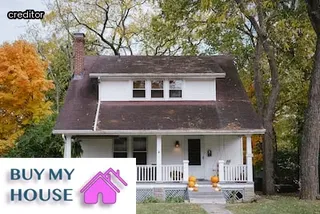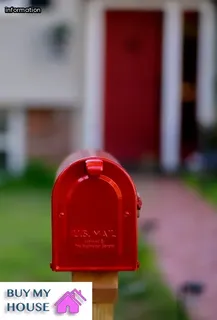When facing a financial crisis, homeowners in Georgia may be wondering if they should let their house go into foreclosure. It is important to understand the foreclosure process and its potential implications before making such a decision.
Foreclosure is when a lender takes possession of your home after you fail to make mortgage payments, and the process begins when a Notice of Default is issued due to nonpayment. In Georgia, this means that the lender has the right to both repossess your home and pursue any remaing debt through legal action.
Foreclosure will appear on your credit report for seven years, potentially limiting your ability to purchase another home or access other forms of credit for several years. Additionally, if you are unable to pay any remaining balance after the sale of your home, you may be held liable for that amount as well.
Ultimately, homeowners must assess their individual circumstances and determine how best to move forward if they are struggling with mortgage payments.

In Georgia, homeowners who are struggling to make their mortgage payments have several preforeclosure options available to them. One option is a repayment plan, where the homeowner can enter into an agreement with the lender to pay back delinquent amounts over an extended period of time.
Another alternative is forbearance, which allows for a temporary break from making payments and can include reduced payments or even deferment of some payments until a later date. A third option is loan modification, in which the homeowner and lender agree to change the terms of the loan in order to make it more affordable.
For those facing foreclosure in Georgia, these options provide a way out and should be considered before letting the house go into foreclosure.
In Georgia, foreclosure is a legal process in which your lender attempts to take possession of your property if you fail to make payments on the loan. The timeline of this process typically starts when you are at least 90 days behind on your mortgage payments and the lender has sent a notice of default.
This notice will include details such as how much you owe, the date that payment must be made by, and any fees associated with the missed payments. If payment is not received within a specified period of time, usually 30-60 days, the foreclosure process begins in earnest, with a public notice being filed by the lender.
During this time, it may be possible to refinance or modify your loan before it goes into foreclosure. Depending on state laws, lenders then have the right to schedule an auction for your home; if there are no bidders at this auction, the lender takes ownership of it.
Throughout this process you have certain rights as a homeowner; speaking with a legal professional can help you understand these rights and any potential options available to you.

In the state of Georgia, there are two main types of foreclosure that can occur when a homeowner is unable to make their payments: judicial and non-judicial. Judicial foreclosure occurs when a lender files a lawsuit in order to obtain a court order that gives them permission to sell the property to collect what is owed.
This form of foreclosure requires the lender to prove in court that the homeowner has failed to pay their debt as agreed upon. Non-judicial foreclosure on the other hand does not require any court involvement and is typically faster than judicial foreclosure.
It takes place when the lender issues a Notice of Default (NOD) which informs the homeowner that they have defaulted on their loan and must cure it within a certain period or else face foreclosure. If the homeowner fails to remedy the situation, then the lender can proceed with issuing a Notice of Sale (NOS) which allows them to auction off or sell their property at public sale.
Ultimately, understanding these common types of foreclosures in Georgia is important for homeowners who are considering whether or not they should let their house go into foreclosure.
When a homeowner in Georgia faces the possibility of foreclosure, it is important to understand the rights and protections that are offered under state and federal laws. Homeowners can find relief through both mandatory and voluntary options.
The Fair Debt Collection Practices Act is a federal law that helps protect homeowners from aggressive debt collection tactics by creditors. In addition, the Georgia Fair Lending Act provides consumer protection for borrowers who have difficulty obtaining mortgage financing.
On the state level, Georgia provides additional protection with its Foreclosure Prevention Program which offers assistance to those facing foreclosure. Furthermore, the Servicemembers Civil Relief Act is designed to help military personnel who are struggling financially due to their service and deployment obligations.
Lastly, homeowners may be able to work with their lender or servicer to pursue alternatives such as loan modifications or refinancing prior to foreclosure. It is important for homeowners in Georgia facing foreclosure to take advantage of all of these legal protections available in order to make an informed decision on how best to proceed with their situation.

The prospect of facing foreclosure is a stressful one, and it can be hard to know what steps to take. In Georgia, there are options to avoid or stop a foreclosure if you act quickly.
The first step is to contact your lender as soon as you realize you may not be able to make a payment. They may be willing to work out an alternative payment plan that works for both parties.
Additionally, if the cause of the foreclosure is due to a one-time event, such as job loss or illness, you can contact local housing counselors who may be able to provide advice or assistance in finding other types of mortgage relief. There are also Federal Home Loan Centers and state programs available in Georgia that offer free counseling and help with mortgage payments.
In some cases, homeowners may even qualify for loan modifications or principal reductions, so it's important to explore all the options before proceeding with a foreclosure. Ultimately, the decision whether or not to let your house go into foreclosure in Georgia will depend on your individual circumstances and financial situation.
In Georgia, homeowners who have gone through foreclosure may still be liable for the difference between their mortgage balance and the auction sale price of their home. This is known as a deficiency judgment, which allows the lender to collect from the borrower if the proceeds from the sale are not enough to cover the debt.
Deficiency judgments can be secured or unsecured debts and can be collected in a variety of ways, including garnishment of wages or bank accounts. If a homeowner is unable to make payment on a deficiency judgment, it may appear on their credit report for up to seven years.
It's also important to note that deficiency judgments may be discharged in bankruptcy as long as certain conditions are met. Before deciding whether to let your house go into foreclosure in Georgia, it's important to understand how you could be impacted by potential deficiency judgments.

Once a foreclosure order is issued, it is important to be aware of the legal implications and understand that you may not have the option to remain in the property. Depending on the lender, you will likely need to move out within a certain period of time after the foreclosure order has been issued.
In some cases, individuals may be eligible for relocation assistance from their lender or housing assistance programs offered by state or local governments. It is also possible for tenants living in a foreclosed property to remain in their unit until it is sold as long as they are current with rent payments and meet all other stipulations set forth by local laws.
Being aware of your rights and responsibilities before agreeing to a settlement on a foreclosure is essential to making sure you are fully informed when making decisions regarding the future of your home.
If you're a homeowner in Georgia and struggling to keep up with mortgage payments, you may be considering letting your house go into foreclosure. Fortunately, there are several options available to help you stay in your home.
The Georgia Department of Community Affairs provides free counseling and assistance through their Homeownership Division. This includes one-on-one counseling from HUD-approved homeownership counselors, who can help you find the best solutions for your situation.
Additionally, the Georgia Dream Homeownership Program offers down payment assistance for first-time homebuyers, as well as grants and mortgages for eligible families. These programs provide low-interest rate loans and other forms of financial support that can help make it easier to keep up with payments and prevent foreclosure.
Furthermore, local organizations such as nonprofits or churches may also have resources available to assist struggling homeowners in Georgia. Ultimately, if you're facing foreclosure due to financial hardship, it's important to seek out all available options before making a final decision about your home.

When it comes to making the difficult decision between forbearance and foreclosure, there are both pros and cons to consider. Forbearance is an option for homeowners in Georgia who are struggling with mortgage payments.
This allows you to temporarily reduce or suspend payments in order to stay in your home while catching up on past due amounts. Foreclosure, however, means that a lender has taken legal action against a borrower who has failed to make their payments.
While this may be a quicker resolution than forbearance, it comes with long-term consequences such as damaging credit scores and difficulty finding future housing. It is important for homeowners facing financial hardship in Georgia to weigh the options carefully before deciding whether forbearance or foreclosure is the best choice for their situation.
Foreclosure can have a significant impact on your credit score. Depending on the status of the loan, it could remain on your credit report for up to seven years and cause your score to decline drastically.
Even if you are able to work out an arrangement with the lender, such as a short sale or deed in lieu of foreclosure, you could still see a dip in your score. The effect is typically greater if you had a high credit score prior to the foreclosure process.
Additionally, it is important to note that lenders may not be willing to extend new lines of credit or loans due to a foreclosure history on your credit report. This could make it difficult for you to purchase another home in the future and could make other large purchases difficult as well.

After a foreclosure, the amount of time that you can remain in your house is determined by Georgia's laws. In some cases, homeowners are given an allotted amount of time to move out of their home after a foreclosure has taken place.
This period of time varies from state to state and can range from 30 days to 12 months depending on the specific situation. During this period, lenders are not allowed to evict the homeowner or lock them out of the house until the eviction period has expired.
During this time, the homeowner is expected to make arrangements for alternative housing and should make sure that they have all necessary documents in order before leaving. Additionally, homeowners may be required to pay certain fees related to the foreclosure process such as court costs and administrative fees associated with the filing process.
Navigating mortgage loans in Georgia can be a daunting task, especially when considering foreclosure. Knowing the laws and regulations regarding foreclosure, as well as understanding the possible financial implications and consequences, is key to making an informed decision.
It's important to consider what kind of assistance is available for struggling homeowners in Georgia; options such as loan modifications, payment plans, and loan forbearance may help prevent foreclosure. Homeowners should also pay close attention to the process for filing for foreclosure protection and the timeline for paying off their debt.
Additionally, understanding the impact that foreclosure could have on credit scores and other financial obligations is essential before making a final decision. Ultimately, homeowners should seek professional advice from a qualified attorney or financial advisor who can provide guidance through this difficult process.

Missing a mortgage payment in Georgia can have drastic consequences. The state follows the non-judicial foreclosure process, which means that lenders do not need to go through the court system to foreclose on a home.
Instead, the lender can issue a notice of default that allows them to take possession of the property and sell it at auction. This process typically begins when a homeowner misses three consecutive payments on their mortgage loan.
In addition, homeowners are responsible for paying late fees and other penalties associated with missed payments. Furthermore, delinquent borrowers may be subject to foreclosure proceedings even if they catch up on payments after missing one or two months.
This means that it is important for homeowners to make sure they keep up with their mortgage payments and contact their lender as soon as possible if they become delinquent.
When considering whether to let your house go into foreclosure in Georgia, it is important to weigh the pros and cons. On the plus side, foreclosure can be an inexpensive option as it may not involve any out-of-pocket expenses for the homeowner.
Additionally, you may be able to negotiate with your lender on a repayment plan or loan modification that could reduce your payments. However, there are some major drawbacks.
Foreclosure can stay on your credit report for up to seven years, significantly impacting your ability to get credit or other loans in the future. You will also be responsible for any deficiency balance between what you owe and what the home sells for during foreclosure proceedings.
In addition, if there is a second mortgage or home equity line of credit attached to the property, it must also be paid off before the foreclosure process can begin. Ultimately, when deciding whether to let your house go into foreclosure in Georgia, it is essential to carefully consider all factors involved before making a decision.

In Georgia, homeowners facing foreclosure can access a variety of financial assistance programs that may help them get back on their feet. The Georgia Department of Community Affairs administers the HomeSafe Georgia program, which provides up to $30,000 in assistance to qualified borrowers who are at risk of losing their homes.
The Hardest Hit Fund (HHF) is another program administered by the Department of Community Affairs that offers up to $50,000 for homeowners who have experienced an involuntary loss of income due to job loss or illness. Additionally, the Federal Housing Administration (FHA) offers mortgage options such as refinancing and loan modifications that can help homeowners reduce their payments and avoid foreclosure.
Lastly, HUD certified housing counseling agencies provide free advice and guidance on how best to manage foreclosure risks and take advantage of local resources.
For Georgia residents looking for alternatives to traditional mortgages, there are numerous options available. Before deciding to let a house go into foreclosure, homeowners should research their options carefully.
Refinancing may be an option for some, as it can help lower monthly payments by extending the loan term or reducing the interest rate. Loan modifications can also provide financial relief, allowing homeowners to adjust the terms of their loan such as reducing principal or interest rate.
Selling the home could be another way to avoid foreclosure; however, this may not be an option if the homeowner is underwater on their mortgage. Lastly, in some cases filing for bankruptcy may delay a foreclosure while providing debt relief.
Ultimately, homeowners should weigh all of their options before deciding to let a house go into foreclosure in Georgia and consult with a qualified professional who can assist them in navigating these complex decisions.

In some cases, it might be beneficial to consider refinancing your home loan in order to avoid a foreclosure. Refinancing involves replacing your existing loan with a new one.
This allows you to secure a lower interest rate or change the terms of your current loan to make payments more manageable. In Georgia, refinancing can help you avoid costly fees associated with foreclosure and may even allow you to keep your home if you are facing financial hardship.
Before deciding whether or not to refinance, it is important to speak with a financial advisor who can review your individual situation and provide advice on the best option for you. Additionally, make sure that you understand any fees that may be associated with refinancing as well as the potential tax implications of this decision.
Taking all of these factors into consideration will help ensure that you make an informed decision about whether refinancing is the right choice for you.
Filing for bankruptcy in Georgia can be an option when facing foreclosure. It is important to get advice from a qualified attorney before making such a decision.
Bankruptcy can help by stopping the foreclosure process and giving the homeowner more time to work out a solution with their lender or find other alternatives. Generally, Chapter 13 bankruptcies are typically used in this situation as it allows individuals to keep their property while reorganizing their debts into a repayment plan that is approved by the court.
In some cases, depending on the type of loan, filing for Chapter 7 bankruptcy may also be possible. This type of bankruptcy involves liquidating non-exempt assets in order to pay off creditors and can result in debt elimination or debt reduction.
In either case, it is important to understand how a bankruptcy will affect credit ratings and any future borrowing decisions. Additionally, filing for bankruptcy should always be considered as a last resort after all other options have been explored.

The Georgia court system and law firms play an important role in the foreclosure process. The court must approve all foreclosure proceedings, so homeowners should be aware that they may have to appear in court to answer questions regarding their financial situation.
Law firms specializing in foreclosure are also available to assist homeowners with the paperwork, filing fees, and other legalities of a foreclosure. Homeowners can work directly with these specialized firms or hire an attorney who is experienced in foreclosure proceedings to represent them during the process.
Understanding the role of the court system and law firms will help homeowners make informed decisions about whether or not to let their homes go into foreclosure.
There are several reasons why some people in Georgia may choose to let their house go into foreclosure. In some cases, it could be due to an inability to make mortgage payments or keep up with other debt related expenses.
Financial hardship can be caused by a job loss, medical bills, or an unexpected life event. Other people may choose foreclosure as a way to avoid significant tax penalties associated with selling the property.
Additionally, some homeowners may decide that it is simply not worth the effort or cost of keeping up with a home that has been severely damaged by natural disasters or disrepair. It is important to consider all of these factors when evaluating whether foreclosure is the right course of action for your particular situation.

Foreclosure is a serious issue and can have long-term consequences, so it’s important to understand the process before deciding if you should let your house go into foreclosure in Georgia. The timeline for a foreclosure proceeding in Georgia depends on the mortgage loan documents and whether the property is secured by a deed of trust.
A standard foreclosure process in Georgia may take anywhere from 90 days to six months, depending on the court’s schedule and how fast paperwork is processed. Before filing for a judicial foreclosure, however, lenders are required to send out notices giving borrowers several months to cure their delinquency or pay off the loan.
During this period, borrowers can work with their lender to avoid foreclosure altogether by either refinancing or modifying their loan terms. Additionally, some counties offer special programs that provide homeowners with assistance to keep them in their homes.
If all else fails and you decide to let your house go into foreclosure in Georgia, it’s important to know what will happen after the process is complete. After all legal proceedings have taken place, lenders will be able to take possession of the home and put it up for sale or auction.
In Georgia, homeowners must be in default on their mortgage for at least five months before being subject to foreclosure. It is important to note that this includes all missed payments, not just consecutive ones.
If a homeowner has missed five or more payments in any combination, the lender can begin the process of foreclosure. This means that if a homeowner has been delinquent on their mortgage for even one month, this could put them at risk for foreclosure after four additional missed payments.
It is therefore important for homeowners to make sure they stay current on their loan payments in order to avoid possible foreclosure.
Foreclosures in Georgia have been on the rise in recent months, according to data from the Georgia Department of Banking and Finance. Currently, Georgia is ranked among the top 10 states for foreclosures, with more than 20,000 reported cases over the past year.
The increase in foreclosures is largely attributed to rising unemployment rates, which has resulted in an inability for many homeowners to keep up with their mortgage payments. This has led to a growing number of individuals who are considering letting their house go into foreclosure in order to avoid further financial hardship.
It is important that these individuals understand all of the implications that come with making this decision before moving forward.
A: After a foreclosure sale, the home will be put up for auction. If no one bids on it, the former homeowner may be able to buy back the home at the foreclosure auction. If no one buys it, then it becomes a foreclosed home and will be sold by the lender or a third party.
A: In Georgia, if a mortgagor defaults on their loan, the mortgage lender can initiate a foreclosure process to take ownership of the home. This will result in negative credit implications for the mortgagor and may lead to other legal repercussions depending on local and state laws.
A: When a debtor deeds a property in Georgia to avoid foreclosure, they are essentially giving up ownership of the property. This means that all rights and responsibilities associated with the property transfer to the new owner. Depending on your situation, it may be wise to consult with an attorney to ensure all legal implications are properly considered before making any decisions.
A: The Making Home Affordable Program offers several foreclosure alternatives to help homeowners keep their homes, including the Home Affordable Modification Program (HAMP) and the Home Affordable Foreclosure Alternatives (HAFA). HAMP provides loan modifications and other assistance for struggling homeowners, while HAFA enables borrowers to avoid foreclosure through a short sale or deed-in-lieu of foreclosure.
A: Loss mitigation with Fannie Mae in Georgia involves a process in which homeowners facing foreclosure can work out an agreement with the lender to either modify their loan, or enter a judgment for deed that allows them to transfer their property to the Fannie Mae Foundation to avoid foreclosure.
A: If you need to foreclose on your house in Georgia, you should first contact the lender and try to negotiate a loss mitigation agreement or work out a repayment plan. You may also want to consult with an attorney or local housing counselor for help with understanding the legal implications of foreclosure. Additionally, you should check your local newspaper and other sources for available assistance programs that can help with foreclosure prevention. Be sure to read and understand any documents related to the foreclosure, such as the promissory note, before signing them.
A: In Georgia, the laws governing foreclosure auctions are detailed in Chapter 44 of the Official Code of Georgia Annotated. The laws provide instructions on how notices should be delivered and published, how bids must be submitted, and how to handle objections to a sale. Additionally, texting is prohibited as a method of submitting bids.
A: If you are considering letting your house go into foreclosure in Georgia, it is highly recommended that you contact a lawyer. You can do this by calling the State Bar of Georgia at (404) 527-8700 or by searching for a qualified attorney on their website at www.gabar.org.
A: You should provide your mortgage servicer with all relevant financial information, including money owed and any confidential information relating to your unique situation. Your servicer can then outline the available options for you to avoid foreclosure.
A: The grace period and trial period for foreclosure in Atlanta, Georgia as set by the Federal Government is 120 days. This allows borrowers to make up delinquent payments or explore other options such as loan modification or short sale. If the borrower fails to meet the requirements of the grace period or trial period, then their property may be subject to foreclosure.
A: The pros of foreclosure in Georgia include avoiding additional financial burden, potentially preserving credit score, and eliminating legal responsibility for the mortgage. The cons include damaging your credit score, losing any equity you have in your home, and extra costs associated with the foreclosure process.